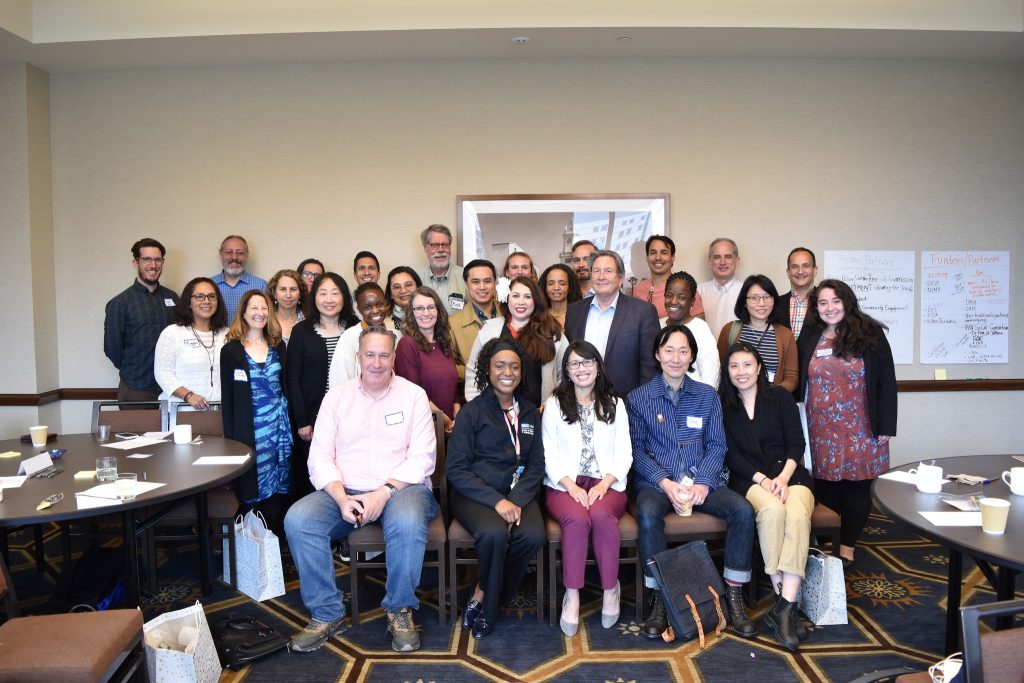Our Mission
The Center for HIV Identification, Prevention, and Treatment Services (CHIPTS) is a collaboration of diverse, multi-disciplinary HIV researchers from UCLA, Charles Drew University of Medicine and Science, Friends Research Institute, and the RAND Corporation. Funded by the National Institutes of Mental Health, CHIPTS promotes collaborative research, fosters networking, and supports capacity building among communities and agency partners in efforts to eliminate new HIV infections and health disparities among key populations with HIV-associated comorbidities. Both domestically and globally, CHIPTS has expertise in HIV program administration, junior faculty and trainee development, policy impact and evaluation, and innovation in interventions to optimize care and treatment of HIV-infected individuals and to expand prevention opportunities for HIV-uninfected at-risk individuals.
WHO WE ARE, WHAT WE DO
The Center for HIV Identification, Prevention, and Treatment Services (CHIPTS) is a collaboration of diverse, multi-disciplinary HIV researchers from UCLA, Charles Drew University of Medicine and Science, Friends Research Institute, and the RAND Corporation. Funded by the National Institutes of Mental Health, CHIPTS promotes collaborative research, fosters networking, and supports capacity building among communities and agency partners in efforts to eliminate new HIV infections and health disparities among key populations with HIV-associated comorbidities.
Commitment to Diversity
CHIPTS is committed to recognizing and nurturing merit, talent, and achievement by supporting diversity and equal opportunity in its research, services, and administration, as well as our networking and capacity building activities.
We believe that diversity is essential to producing innovative, impactful and meaningful science. Diversity refers to the variety of personal experiences, values, and worldviews that arise from differences of culture and circumstance – including race, ethnicity, gender, age, religion, language, abilities/disabilities, sexual orientation, gender identity, and more.
CHIPTS is invested in ensuring that researchers, staff, and students from all backgrounds have equal opportunities to participate and contribute to the efforts and activities within our Center.
Our Cores
CHIPTS is comprised of five Cores, which support the design, implementation, and evaluation of existing funded projects and assist in the development of new HIV research protocols focused on communities, systems-of-care, service providers, and individuals at risk
Administrative Core
The Administrative Core identifies and manages strategies for addressing the Center’s strategic planning process (i.e., setting a scientific agenda), daily operation of the Center, including self-monitoring, budgets, dissemination, and identifying scientific challenges that require analysis by multi-disciplinary teams. In addition, it fosters the relationship between CHIPTS scientists, community stakeholders, and the communities affected by or at-risk for HIV in Los Angeles, in the state, in the nation, and globally. The Global HIV Prevention Strategies Program is also housed within the Administrative Core.
Combination Prevention Core
The Combination Prevention Core facilitates research and provides expertise on high-impact combination behavioral, biomedical, technological and structural interventions to reduce HIV incidence and to improve viral suppression, especially in key populations and those with substance use and mental health disorders. They provide expertise, leadership, and capacity building support to scientists, health departments, and community based organizations engaged in these activities.
Development Core
The Development Core reviews and allocates pilot funds, implements an investigator career development component through which researchers can obtain multidisciplinary peer review, and coordinates community relationships, particularly across Cores. It aims to invest in innovative, early stage research to emerging investigators and promotes dissemination of findings locally, nationally and internationally.
Methods Core
The Methods Core provides expertise, leadership and infrastructure to promote and facilitate the quality of HIV research projects conducted by CHIPTS researchers and collaborators. The Core guides innovation and impact in measurement, statistical methods, and implementation science, focusing on factors presented by those with substance use and mental health disorders.
Policy Impact Core
The Policy Core optimizes public health impact and science implementation by providing evidence on policy options to guide HIV prevention policy at local, national, and international levels.



